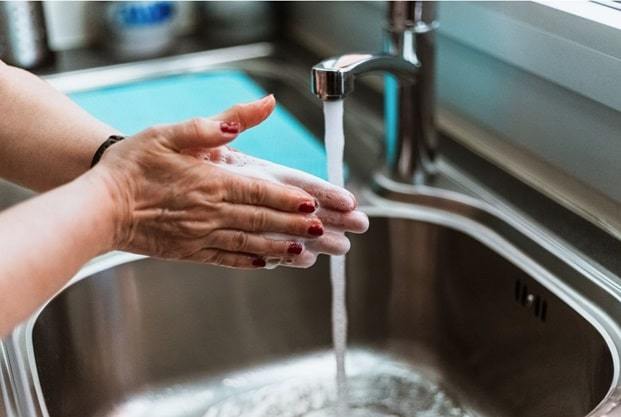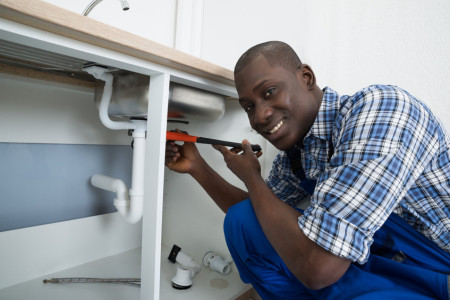Right here in the next paragraphs you will find lots of exceptional tips with regards to Plumbing Emergencies: Tips on What To Do Before.

Plumbing emergencies can strike at any moment, causing stress and possible damages to your home. Whether it's a ruptured pipeline, a stopped up drainpipe, or a leaking faucet, recognizing just how to handle the situation till an expert plumbing technician arrives can conserve you from more issues. This post offers important emergency situation pipes suggestions to help you alleviate damage and regain control throughout a plumbing crisis.
Switch off the Water System
The primary step in any pipes emergency is to shut down the supply of water. For localized concerns, such as a leaking faucet or commode, shut off the valve near the component. In the case of a major leakage or burst pipeline, locate your home's major water shut-off valve and transform it off promptly. Knowing the place of these valves ahead of time can save beneficial time during an emergency situation.
Address Small Leakages with Short-term Solutions
Small leakages can rapidly come to be significant troubles if left unchecked. Make use of these temporary repairs until expert aid arrives:
While these repairs aren't irreversible, they can help lessen water loss and damage.
Unclog Drains Pipes Securely
A blocked drainpipe can be an irritating and unpleasant issue. Right here's just how to tackle it:
If these techniques do not function, avoid using excessive force, as it may aggravate the clog.
Take Care Of Overflowing Toilets
An overruning bathroom can trigger instant turmoil. Right here's what you ought to do:
Turn off Your Water Heater
In specific emergencies, such as a burst pipe, it's a good idea to shut off your water heater. This avoids overheating or damages to the device when water quits moving. Switch off the power supply to the hot water heater (electrical or gas) and let it cool off to prevent potential risks.
Temporarily Stop a Burst Pipeline
A ruptured pipeline can cause considerable water damage in minutes. To reduce the issue:
Call a professional plumbing professional promptly to deal with the problem permanently.
Deal With Frozen Pipeline Carefully
In cooler environments, frozen pipes are an usual emergency situation. If you think a frozen pipeline:
Avoid More Damage
Taking fast action to decrease damage can conserve you time and money in the future. Here's just how:
. Have an Emergency Pipes Kit
Prepare a fundamental pipes emergency kit to manage small issues successfully. Your package ought to consist of:
Having these tools accessible can make a significant difference in your capacity to manage emergency situations.
Know When to Call a Specialist.
While quick fixes can assist briefly, particular plumbing concerns require instant specialist attention. Call a plumbing technician if:.
Quickly calling an expert makes certain the issue is fixed appropriately and avoids additional issues.
Verdict.
Plumbing emergency situations can be frustrating, yet with the appropriate expertise and devices, you can take care of the scenario successfully up until assistance gets here. By switching off the water supply, addressing small leaks, and using short-term repairs, you can lessen damages and maintain your home safe. Bear in mind, these pointers are short-lived remedies; always consult a licensed plumbing to deal with the source of the issue. Preparation and quick thinking are your finest allies in any type of plumbing emergency.
Expert Tips for Emergency Plumbing Repairs
Plumbing emergencies can be incredibly stressful and inconvenient. Whether it’s a burst pipe, a clogged drain, or a leaky faucet, these common plumbing emergencies need immediate attention to prevent further damage to your home. But before you panic, it’s important to understand the basics of plumbing repairs and the steps you can take to address these emergencies. In this article, we will share some expert tips to help you navigate through these situations and minimize potential water damage.
Identifying Common Plumbing Emergencies
Leaky pipes and faucets Clogged drains and toilets Burst pipes Low water pressure Water heater problems Essential Tools for Plumbing Repairs
Plunger: Useful for unclogging toilets and drains Adjustable wrench: Needed for tightening or loosening nuts and bolts Pipe wrench: Ideal for gripping and turning pipes Tape measure: Necessary for accurate pipe measurements Plumber’s tape: Helps create watertight seals Understanding Emergency Plumbing Services
Emergency plumbing services are designed to provide immediate assistance for unexpected plumbing issues that can cause significant damage to your home, business, or health. These services are typically available 24/7 and are staffed by experienced plumbers who can quickly diagnose and repair a wide range of plumbing problems.
When a plumbing emergency strikes, time is of the essence. Whether it’s a burst pipe flooding your basement or a gas leak posing a serious risk, emergency plumbing services ensure that help is just a phone call away. These professionals are equipped with the tools and expertise to handle any situation, minimizing damage and restoring your plumbing system to proper working order.
What Constitutes a Plumbing Emergency?
Burst pipes or water supply lines: These can cause extensive water damage and need immediate repair to prevent flooding. Gas leaks or suspected gas leaks: Gas leaks are extremely dangerous and require prompt attention to avoid potential explosions or health hazards. Sewer backups or overflows: These can lead to unsanitary conditions and significant property damage. Clogged drains or toilets causing water to overflow: Overflowing water can damage floors, walls, and other structures. Leaks or water damage causing structural damage: Persistent leaks can weaken the structural integrity of your home or business. No hot water or heating: A lack of hot water can be more than an inconvenience, especially in colder months. Common Causes of Plumbing Emergencies
Aging or corroded pipes: Over time, pipes can deteriorate, leading to leaks or bursts. Improperly installed or maintained plumbing fixtures: Faulty installations or lack of maintenance can result in unexpected failures. Tree roots or other debris infiltrating your sewer line: Roots can grow into pipes, causing blockages and backups. Frozen pipes or water supply lines: In colder climates, pipes can freeze and burst, leading to significant water damage. High water pressure or sudden changes in water pressure: Excessive pressure can strain pipes and fixtures, causing them to fail. Natural disasters such as floods or earthquakes: These events can disrupt your plumbing system and cause severe damage. Steps to Minimize Water Damage
Locate the water shut-off valve: Knowing where the valve is can help you quickly cut off the water supply to the affected area. Turn off the water heater: If there’s a risk of water coming into contact with the heating element, make sure to turn off the water heater to avoid potential accidents. Open faucets and drain pipes: By opening faucets and drain pipes, you can relieve pressure and empty any standing water. Collect and contain water: Use towels, buckets, or bins to collect water and prevent it from spreading to other areas of your home. https://leecountyplumbingandwellservice.com/expert-tips-for-emergency-plumbing-repairs/

Do you appreciate more info about What to Do During a Plumbing Emergency? Try leaving a review directly below. We'd be delighted to listen to your opinions about this blog. We hope to see you back again in the future. You should take the opportunity to promote this blog post if you appreciated it. Thanks a lot for being here. Don't hesitate to check our site back soon.
Book Today!